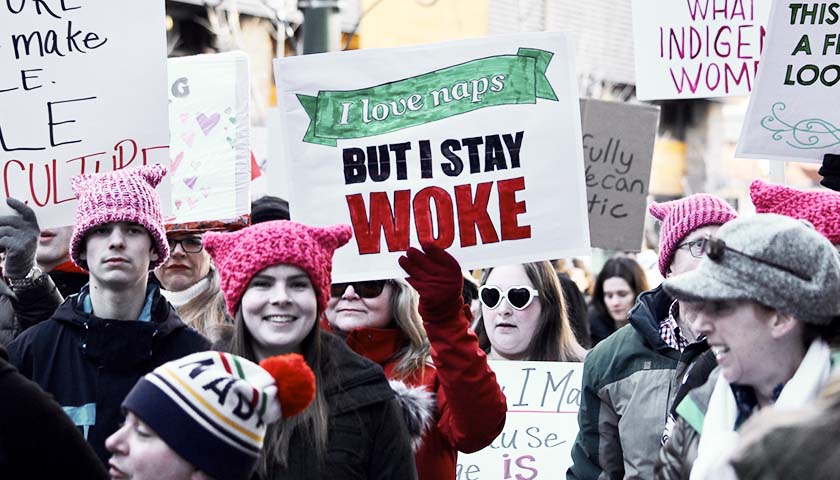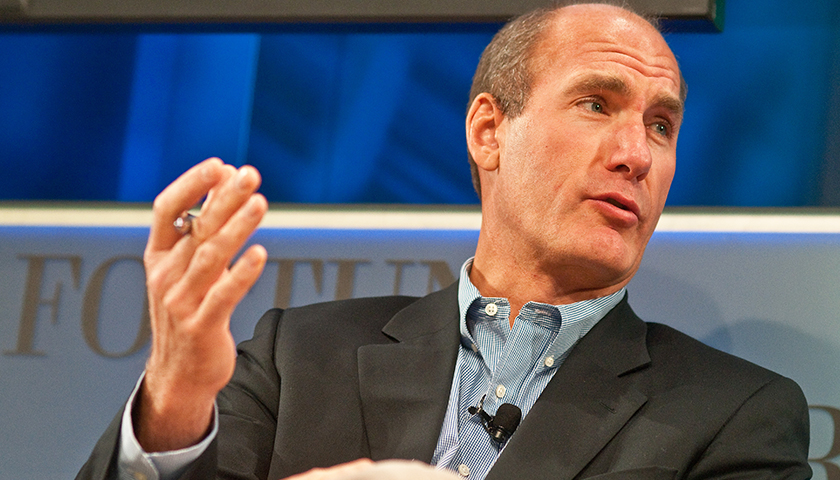Foundation for Freedom Online Executive Director Mike Benz breaks down exactly how Big Tech, Big Government, and the Deep State are working together to impose speech restrictions on the people of the United States and across the globe.
Read MoreTag: mainstream media
Commentary: Mainstream Media Has Convinced Even Republicans to Believe Hunter’s Business Is No Big Deal
After reading my commentary about my self-inflicted ordeal of listening to NPR for a month, a friend noted this station’s “reports” bear no resemblance to “objective reality.” Can so many Americans, asked my correspondent, believe that the U.S. is full of oppressed transgendered who must take up arms to protect themselves against “anti-trans rhetoric?” Do NPR listeners really think American blacks are suffering from “systemic white racism,” and that only increased government control can protect them from being shot on the streets by white racists?
Read MoreCommentary: Take GOP Debates Away from the Mainstream Media
Tucker Carlson reportedly wants to host his own GOP presidential debate. The idea struck a chord with many people. It would be must-see TV for the most popular commentator on the Right to grill presidential hopefuls before a national audience. Republican voters would also prefer if those asking the candidates questions were not liberal reporters.
With Carlson now visible primarily on Twitter, it looks like he will have the opportunity to host the debate on the social media giant. According to the Washington Post, “Carlson wants to moderate his own GOP candidate forum, outside of the usual strictures of the Republican National Committee debate system.”
Read MoreCommentary: DeSantis Charms GOP by Condemning ‘Leaks’ and ‘Palace Intrigue’
On its face, there wasn’t anything unusual about the email that landed last week in the press office of Florida Gov. Ron DeSantis.
“Background interview request from the Washington Post,” read the subject line that summarized the industry-standard process whereby information is shared with reporters under pre-negotiated terms, usually anonymity. When sanctioned by a politician or their team, it is called “going on background” to shape and broaden a story with additional facts and contexts but without direct attribution. When not sanctioned, well, then that is just called leaking.
Read MoreAxios Agrees to $525 Million Sale to Cox Enterprises
Axios agreed to sell to Cox Enterprises for an estimated $525 million, the companies announced on Monday.
Cox Enterprises, a global media company with 50,000 employees, is Axios’ most recent lead investor.
Axios CEO and co-founder Jim VandeHei celebrated the deal.
“This is great for Axios, for our shareholders and American journalism. It allows us to think and operate generationally, with a like-minded partner — and build something great and durable that lives long after we are gone,” he said, Axios reported.
Read MoreCommentary: The Pathological Nature of Wokeness
It is not often that two contrasting mainstream media events reveal so completely the nature of the deep dysfunction of modern culture. Yet that is precisely what happened last month.
Those two events are as follows: First, contrarian Substack writer and known anti-woke crusader Andrew Sullivan appeared on Jon Stewart’s new show, “The Problem With Jon Stewart.” I do not think I am being uncharitable when I call the appearance a disaster. Which, to be fair, is not entirely Sullivan’s fault, seeing as he was thrust into what was effectively a three-on-one fight (more like a dozens-on-one fight, if you include the studio audience). He was the lone dissenter against a pack of braying fanatics, egged on by a motley trio consisting of a grifter and two useful idiots, one of whom is the most famed enforcer of liberal dogma from decades past.
Read MoreCommentary: John Stankey Stinks up CNN Even More
Yo! John Stankey! We told you CNN was stinking up AT&T. Now you are making it worse!
In an interview with CNBC last week, AT&T boss John Stankey exchanged his trademark “Mr. Hollywood Casual” for “Doctor Evil Lite,” while dodging every sensitive question about CNN’s “Mother Zucker” debacle.
In fact, Stankey did the best non-stop weasel dance since the invention of “Whack-a-Mole.”
Read MoreCommentary: Mainstream Media Newspapers Are Stubborn About Correcting Errors
Many iconic U.S. newspapers sport slogans that seek to explain their mission – and self-image. “All the News That’s Fit to Print” has been called “the seven most famous words in American journalism.” “Democracy Dies in Darkness” was an overtly partisan call to arms. But the most telling section of a newspaper’s true values is its “Corrections” page. That’s where journalism distinguishes itself from just about every other profession, routinely and straightforwardly admitting its mistakes. Who else does that?
It is a soul-crushing enterprise. A single misspelled name is all it takes to ruin an otherwise stellar article. We reporters may forget the topic of the piece we wrote last week, while the error five years ago is seared into our memories. But it is also crucial: Reader trust is the lifeblood of journalism. If you can’t believe what you read, why bother?
And yet, we do get things wrong all the time. Despite the self-righteous claims of too many news outlets, journalists don’t print The Truth. The “first draft of history” is necessarily messy and incomplete. What journalists have long promised readers is that we will do our best to get the story right initially and then set the record straight when better information emerges. This isn’t solely a commitment to high-minded ethics. It is also transactional: Journalists can so readily acknowledge errors because readers honor and reward our honesty. They forgive us our trespasses because we acknowledge them.
Read More







